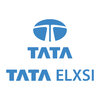
i
ITC Infotech
Filter interviews by
ITC Infotech Plsql Developer Interview Questions and Answers
ITC Infotech Plsql Developer Interview Experiences
1 interview found
I applied via Naukri.com and was interviewed in Sep 2024. There was 1 interview round.
(4 Questions)
- Q1. How do you optimize Stored procedure
- Ans.
Optimizing stored procedures involves using proper indexing, reducing unnecessary loops, and minimizing database calls.
Use proper indexing on columns used in WHERE clauses to improve query performance
Avoid using cursors and loops whenever possible, as they can be inefficient
Minimize the number of database calls by combining multiple queries into a single query or using temporary tables
Consider using bulk processing tec...
- Q2. How do you optimize SQL query
- Ans.
Optimizing SQL queries involves using indexes, minimizing data retrieval, avoiding unnecessary joins, and optimizing query structure.
Use indexes on columns frequently used in WHERE clauses
Minimize data retrieval by selecting only necessary columns
Avoid unnecessary joins by using EXISTS or IN clauses instead
Optimize query structure by using appropriate join types and conditions
- Q3. What is use of returning clause
- Ans.
Returning clause is used to return a value from a function or procedure in PL/SQL.
Used to return a single value from a function or procedure
Can be used to return multiple values using OUT parameters
Helps in passing values back to the calling program
- Q4. Disadvantages of triggers
- Ans.
Triggers can lead to performance issues, complexity, and potential for unintended consequences.
Triggers can make code harder to debug and maintain
They can lead to cascading effects if not carefully implemented
Performance can be impacted if triggers are not optimized
Triggers can introduce dependencies between different parts of the codebase
Skills evaluated in this interview
Top trending discussions






Interview questions from similar companies

Interview Questionnaire
2 Questions
- Q1. They have only one phone interview
- Q2. They asking about full sql and plsql
Interview Preparation Tips
Experience: Detailed description of explaination full topics

I applied via Approached by Company and was interviewed before Jul 2021. There were 2 interview rounds.

(1 Question)
- Q1. 1. Basic questions of PLSQL. 2. When to rebuild indexes and how to build them. 3. Performance tuning.
Interview Preparation Tips


JOINS DIFFERENCE BETWEEEN (LEFT,RIGHT,INNER,FULL)
CREATE OR REPLACE PROCEDURE PP(A NUMBER) IS
BEGIN
DBMS_OUTPUT.PUT_LINE(A);
END;
/

I applied via LinkedIn and was interviewed in May 2022. There were 2 interview rounds.

(2 Questions)
- Q1. Views and triggers basics
- Q2. Learning capabilities of new softwares
- Ans.
I have a strong ability to learn new software quickly.
I am a self-motivated learner and enjoy exploring new technologies.
I am comfortable with online tutorials, documentation, and experimenting with new software.
I have experience learning new software such as Oracle SQL Developer, Toad, and PL/SQL Developer.
I am able to adapt to new software quickly and efficiently.
Interview Preparation Tips

(15 Questions)
- Q1. Self introduction and questions related to my project
- Q2. What are joins in SQL, and can you provide examples of their usage?
- Ans.
Joins in SQL are used to combine rows from two or more tables based on a related column between them.
Joins are used to retrieve data from multiple tables based on a related column.
Common types of joins include INNER JOIN, LEFT JOIN, RIGHT JOIN, and FULL JOIN.
Example: SELECT * FROM table1 INNER JOIN table2 ON table1.column = table2.column;
- Q3. What are the built-in functions available in SQL?
- Ans.
Some built-in functions in SQL include AVG, COUNT, MAX, MIN, SUM, and CONCAT.
AVG: Calculates the average value of a numeric column
COUNT: Counts the number of rows in a result set
MAX: Returns the maximum value in a column
MIN: Returns the minimum value in a column
SUM: Calculates the sum of values in a column
CONCAT: Concatenates two or more strings together
- Q4. What are the different types of cursors in database management systems?
- Ans.
Types of cursors in database management systems include implicit, explicit, and parameterized cursors.
Implicit cursors are automatically created by the database when a SQL statement is executed.
Explicit cursors are defined by the programmer and give more control over the result set.
Parameterized cursors allow for dynamic SQL statements with parameters.
Examples: SELECT statement using implicit cursor, DECLARE, OPEN, FET...
- Q5. What is the difference between procedures and functions in programming?
- Ans.
Procedures are used to perform an action, while functions return a value.
Procedures do not return a value, while functions do.
Functions can be used in SQL queries, while procedures cannot.
Functions can be called from within SQL statements, while procedures cannot.
Procedures can have OUT parameters to return multiple values, while functions can only return a single value.
- Q6. What is the query to print the third highest salary from the given table?
- Ans.
Use a subquery to find the third highest salary in a table.
Use the RANK() function to assign a rank to each salary in descending order.
Filter the results to only include rows with a rank of 3.
Consider handling ties in salaries appropriately.
- Q7. What is a package, and how do you utilize it in your project?
- Ans.
A package is a collection of related procedures, functions, variables, and other PL/SQL constructs.
Packages help organize and encapsulate code for easier maintenance and reuse.
They can contain both public and private elements.
Packages can be used to group related functionality together, improving code modularity.
Example: CREATE PACKAGE my_package AS ... END my_package;
- Q8. Can you describe two complex JIRA issues you have worked on?
- Ans.
Resolved a critical bug causing data loss and implemented a new feature for better user experience.
Identified root cause of data loss bug by analyzing database queries and logs
Collaborated with cross-functional teams to prioritize and implement a fix
Designed and implemented a new feature based on user feedback to enhance usability
- Q9. What are the different types of indexes?
- Ans.
Different types of indexes include B-tree, Bitmap, Function-based, and Reverse key indexes.
B-tree indexes are the most common type and are suitable for most indexing needs.
Bitmap indexes are used for columns with low cardinality, such as gender or status columns.
Function-based indexes are created based on expressions or functions applied to columns.
Reverse key indexes store keys in reverse order to reduce contention in...
- Q10. What are analytical functions in sql?
- Ans.
Analytical functions in SQL are used to perform calculations across a set of rows related to the current row.
Analytical functions operate on a group of rows and return a single result for each row.
They can be used to calculate running totals, moving averages, rank, percentiles, etc.
Examples include ROW_NUMBER(), RANK(), DENSE_RANK(), SUM() OVER(), AVG() OVER().
- Q11. What are aggregate functions in SQL?
- Ans.
Aggregate functions in SQL are functions that operate on a set of values and return a single value as output.
Aggregate functions include functions like SUM, AVG, COUNT, MIN, and MAX.
They are used with the GROUP BY clause to perform calculations on groups of rows.
Examples: SELECT SUM(salary) FROM employees; SELECT AVG(age) FROM students GROUP BY class;
- Q12. How did you handle performance tuning in your project?
- Ans.
I identified and optimized slow-performing SQL queries by analyzing execution plans and indexing strategies.
Identified slow-performing SQL queries using tools like Oracle SQL Developer or TOAD.
Analyzed execution plans to understand query performance bottlenecks.
Optimized queries by rewriting SQL code, adding indexes, or restructuring data.
Used tools like Explain Plan or SQL Tuning Advisor to improve query performance.
R...
- Q13. What is data modeling?
- Ans.
Data modeling is the process of creating a visual representation of data structures and relationships within a database.
Data modeling helps in organizing and understanding complex data systems.
It involves identifying entities, attributes, and relationships between them.
Examples include ER diagrams, UML diagrams, and relational data models.
- Q14. What steps did you take to perform root cause analysis in your project?
- Ans.
I conducted thorough analysis by reviewing code, logs, and discussing with team members.
Reviewed code to identify potential issues
Analyzed logs for error messages and patterns
Discussed with team members to gather insights and perspectives
Used debugging tools to trace the root cause
- Q15. What is a trigger in database management, and what are its different types?
- Ans.
A trigger in database management is a special type of stored procedure that is automatically executed when certain events occur in a database.
Triggers can be used to enforce business rules, maintain referential integrity, and automate repetitive tasks.
There are two main types of triggers: row-level triggers and statement-level triggers.
Row-level triggers are fired for each row affected by a triggering statement, while ...
Skills evaluated in this interview

I appeared for an interview in Oct 2022.

(1 Question)
- Q1. Technical question related about based on project and domain knowledge
(1 Question)
- Q1. Asked about flexibility and discussion with salary
Interview Preparation Tips

I applied via Naukri.com and was interviewed in Sep 2022. There were 3 interview rounds.

(2 Questions)
- Q1. What was temp variable
- Ans.
A temporary variable used to store data during program execution.
Temp variables are used to hold data temporarily during program execution.
They are typically used in loops or conditional statements.
Once the program execution is complete, the temp variable is no longer needed.
Example: int temp = 0; for(int i=0; i<10; i++) { temp += i; }
In this example, the temp variable is used to store the sum of the numbers 0-9.
- Q2. Breif about previous company
(1 Question)
- Q1. Document verification and onboarding
Interview Preparation Tips

I applied via Approached by Company and was interviewed in Jun 2022. There was 1 interview round.
(1 Question)
- Q1. 1. Tell me about yourself. 2. Topics like Stored procedure, functions, cursors, package.
Interview Preparation Tips
- PLSQL
- SQL
- Stored Procedures
- Sql function
I got shortlisted after the interview but due to some technical issu in their portal, I couldn't upload my documents. I mailed them multiple times but got no help, no calls from any person and some of my friends also told me they faced many situations and none from TCS helped them out.
So, my advice will be don't for that company. Prepare for others.


(1 Question)
- Q1. Salary negotiation, notice period, immediate joining, policy,
(1 Question)
- Q1. Coding is must in plsql developer
Interview Preparation Tips
ITC Infotech Interview FAQs
Tell us how to improve this page.
ITC Infotech Interviews By Designations
- ITC Infotech Associate Information Technology Consultant Interview Questions
- ITC Infotech Lead Consultant Interview Questions
- ITC Infotech Associate Consultant Interview Questions
- ITC Infotech Software Developer Interview Questions
- ITC Infotech Associate IT Consultant 2 Interview Questions
- ITC Infotech IT Consultant Interview Questions
- ITC Infotech Software Engineer Interview Questions
- ITC Infotech Java Developer Interview Questions
- Show more
Interview Questions for Popular Designations
- Software Developer Interview Questions
- Java Developer Interview Questions
- System Engineer Interview Questions
- Associate Interview Questions
- Web Developer Interview Questions
- Application Developer Interview Questions
- Salesforce Developer Interview Questions
- Lead Engineer Interview Questions
- Show more
Overall Interview Experience Rating
based on 1 interview experience
Difficulty level
Duration
Interview Questions from Similar Companies
ITC Infotech Plsql Developer Reviews and Ratings
based on 3 reviews
Rating in categories
|
Associate Information Technology Consultant
5.1k
salaries
| ₹3.9 L/yr - ₹15 L/yr |
|
Lead Consultant
4.6k
salaries
| ₹9.2 L/yr - ₹36 L/yr |
|
Associate Consultant
954
salaries
| ₹2.5 L/yr - ₹18.4 L/yr |
|
Software Engineer
514
salaries
| ₹3.6 L/yr - ₹14.3 L/yr |
|
Senior Software Engineer
382
salaries
| ₹6.8 L/yr - ₹25.4 L/yr |

TCS

Mphasis

L&T Technology Services

Coforge
- Home >
- Interviews >
- ITC Infotech Interview Questions













